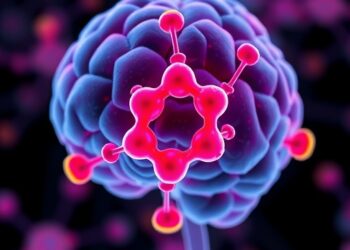Cancer is a complex, multifactorial disease with a substantial global burden. Recent years have seen a surge in research focusing on preventive measures, particularly through diet and supplements. The role of nutrition in cancer incidence and prevention is widely recognized, though the specifics of these relationships remain under investigation. This review expands on the findings of Anandu Chandra Khanashyam et al., exploring the nuanced links between diet, supplements, and cancer prevention.
Cancer is a complex, multifactorial disease with a substantial global burden. Recent years have seen a surge in research focusing on preventive measures, particularly through diet and supplements. The role of nutrition in cancer incidence and prevention is widely recognized, though the specifics of these relationships remain under investigation. This review expands on the findings of Anandu Chandra Khanashyam et al., exploring the nuanced links between diet, supplements, and cancer prevention.
The significance of diet and supplements in cancer prevention is well-documented, with nutrition being a key factor in cancer incidence. Epidemiological research highlights the complex interactions between dietary factors and cancer risk, yet inconsistencies persist, limiting firm conclusions. Factors such as obesity, high-calorie foods, sugary beverages, and processed meats are known to increase cancer risk. Conversely, diets rich in whole grains, vegetables, and fruits are believed to reduce this risk. Obesity is linked to 14% of cancer deaths in men and 20% in women, with specific dietary factors like alcohol, red meats, and aflatoxins being associated with various cancers.
Evidence Linking Diet and Cancer
Historical and contemporary research underscores the role of diet in cancer development. The physician Galen in 168 BC first suggested diet’s involvement in cancer growth. Modern epidemiological studies have consistently shown correlations between specific foods and cancer risk. Factors like the amount, timing, and duration of exposure to bioactive food components influence cellular responses and cancer development. It is now understood that the effects are likely due to multiple carcinogenic pathways acting in concert rather than individual compounds.
Dietary Patterns and Cancer Risk
Shifting from a nutrient-centric approach to examining overall dietary patterns offers a more comprehensive understanding of diet’s impact on cancer risk. Healthy dietary patterns, characterized by high intake of fruits, vegetables, and whole grains, are associated with a lower risk of cancers, particularly colon and breast cancer. Processed and red meats, which contain carcinogenic compounds formed during high-temperature cooking, are linked to gastrointestinal cancers. However, the evidence remains complex and sometimes contradictory.
Dietary Supplements in Cancer Prevention
While certain micronutrients and antioxidants, such as vitamins B12, D, C, selenium, folic acid, and carotenoids, have shown potential in cancer prevention, their indiscriminate use can be harmful. Well-nourished individuals might not benefit from additional supplements, and excessive intake could increase cancer risk. Phytochemicals and plant extracts, like polyphenols found in fruits, vegetables, and beverages, are promising due to their anti-carcinogenic properties. These compounds can alter molecular processes of metastasis and suppress carcinogenesis initiation.
Phytochemicals and Plant Extracts
Polyphenols, a diverse group of plant constituents, play a significant role in cancer prevention. They are categorized into flavonoids, phenolic acids, lignans, stilbenes, and other polyphenols, with the majority found in fruits, vegetables, and nuts. These compounds exhibit protective effects against various cancers. Probiotics, another functional food group, modify gut microbiota, neutralize carcinogens, and enhance gut barrier function, thus reducing tumor growth and metastasis.
Conclusions
Lifestyle and dietary habits significantly influence cancer risk. Adopting a balanced diet rich in fruits, vegetables, whole grains, and legumes can lower cancer risk. Antioxidants in these foods help repair cells and reduce inflammation, counteracting cancer cell mechanisms. While epidemiological and clinical research has advanced our understanding of diet and cancer prevention, further studies are necessary to clarify these relationships. Caution is advised against excessive supplement use, and dietary modifications should be part of a holistic approach to cancer prevention. There is no conclusive evidence favoring a specific diet, but general healthy dietary patterns positively impact cancer prevention.
In summary, diet and dietary supplements hold promise in cancer prevention, but their role must be understood within the broader context of overall lifestyle and dietary patterns. Continued research is essential to establish effective dietary strategies for cancer prevention.
Full text
The study was recently published in the Cancer Screening and Prevention.
Cancer Screening and Prevention (CSP) publishes high-quality research and review articles related to cancer screening and prevention. It aims to provide a platform for studies that develop innovative and creative strategies and precise models for screening, early detection, and prevention of various cancers. Studies on the integration of precision cancer prevention multiomics where cancer screening, early detection and prevention regimens can precisely reflect the risk of cancer from dissected genomic and environmental parameters are particularly welcome.
Follow us on X: @xiahepublishing
Follow us on LinkedIn: Xia & He Publishing Inc.
Journal
Cancer Screening and Prevention
Article Title
Diet and Supplements in Cancer Prevention
Article Publication Date
14-Jun-2023




